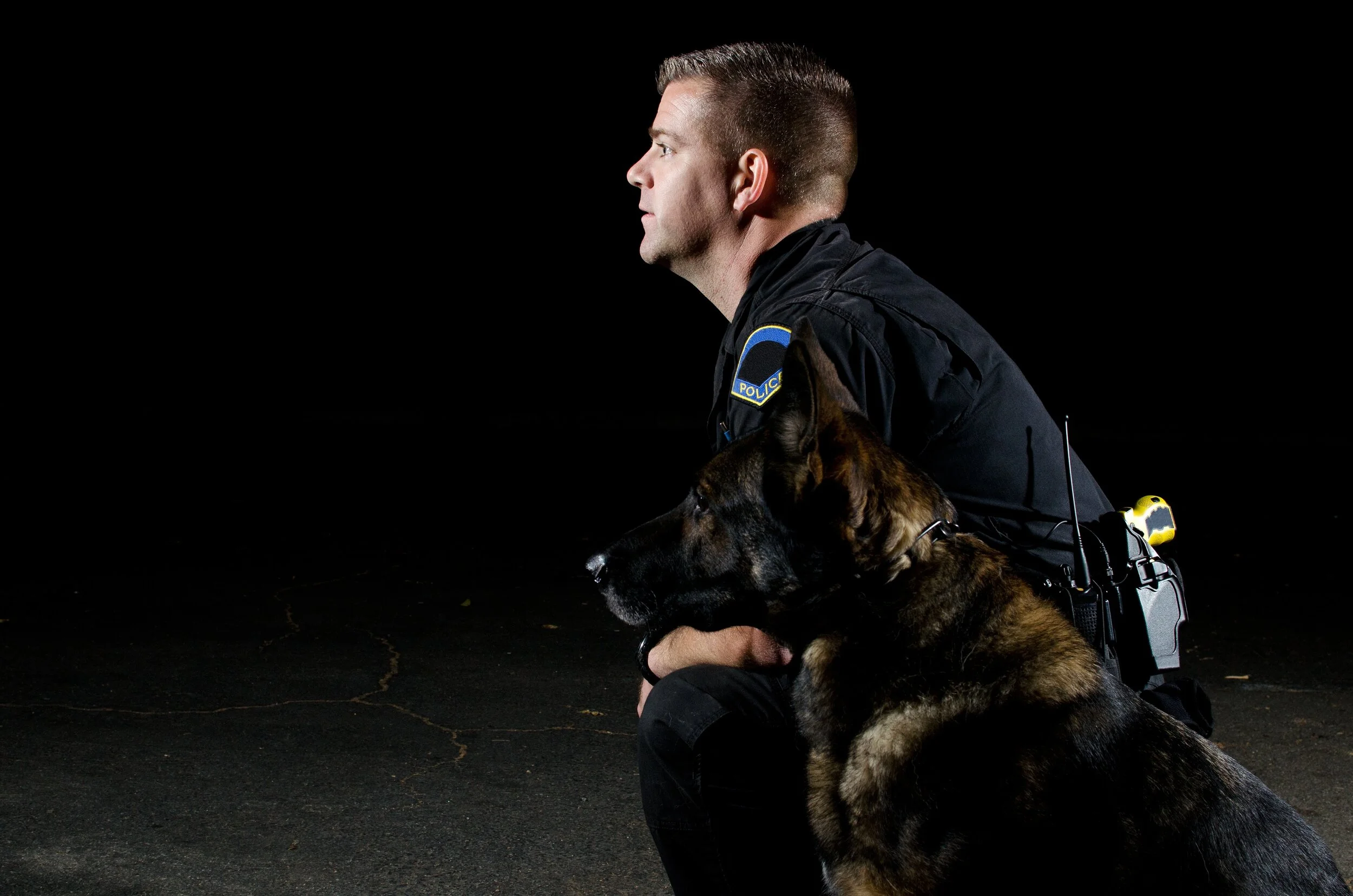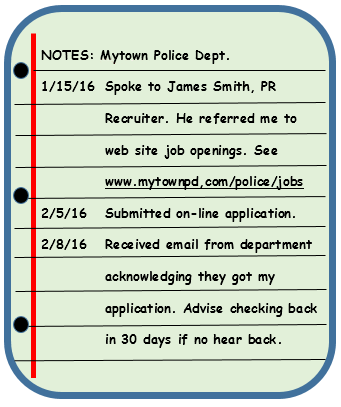Your Police Application
You probably think that the Police Written Exam is the first step in the police hiring process, but you’d be wrong. Filling out the job application and managing the process is the first task that will challenge you. You can really make your life more difficult if you don't do it correctly.
Here are some valuable tips that will help you avoid pain, agony, delay, frustration and possible rejection:
1. Spread Your Risks
This is a repeat of my top four guidelines - don't put all of your eggs in one basket. Because of the intense competition for these positions, your chance of getting accepted to any specific agency can be as low as 10:1, even when fully qualified. For this reason, I recommend that you apply to as many agencies as you can manage in parallel. Get your foot in the door, and after a couple of years, you can more easily transfer to the location you most prefer.
2. Consistency is King
Naturally, you want to be accurate and honest on your job application, but in my experience, being consistent should be your top priority. The reason is, months after you have submitted your application, when you are being asked questions on the polygraph or job interview, giving an answer that is inconsistent with your application is the surest way to raise red flags. The nature of the inconsistency may be very minor, like forgetting a 3-month job you held when you were 18. But you don’t want red flags to come up for any reason. Read on to discover tips for insuring that inconsistencies don’t trip you up.
3. Prepare Your Master Resume
Following Rule #1 here, get your hands on the job application template from several different agencies. These are usually available on-line. You will notice that while they are different, they have many common sections that you will be asked to fill out. So, before you complete any specific application, I strongly recommend that you make your own, personal, Master Resume that will serve as a master for filling the actual applications you plan to make. Even though this will take time, the investment of time in this master document will save you lots of time and grief throughout the rest of the process.
By creating a master, you will then be able to Copy and Paste a consistent set of data into each application.
Consistency starts with little things, like your name and address. Enter your name as you have it on your driver’s license, for example.
The most common areas of inconsistency will occur when you describe what jobs you have held and for what periods of time. The specific date is less important than being consistent. A recruiter is not going to care whether you started delivering pizzas in January of 2007, or March of 2007, so long as you are consistent.
Since the hiring process will take many months, you need to anticipate that you probably will forget what exactly you put on each application. This is where your Master Resume will save you towards the end of the process.
You are welcome to download and use my Master Resume Template (Word doc) here. (Be sure to Enable Editing in Word.)
4. Plan Early for the Polygraph
You need to think about the polygraph when filling out your application. On both the application and the polygraph, you will be asked questions like, “Have you ever stolen anything?” You recall that you stole a soda from the grocery store when you were 11. Because you are an honest person, you struggle with your own conscience about whether this is important enough to mention.
Because of the trivial nature of your offense, how you answer this question is less important than being consistent when asked many months later. When the polygraph comes up, and the same question is asked, you will relive the moral dilemma you faced when you first filled out your application – should you admit to this minor offense or not? Your nervousness might create a "false lie" and an inconsistency will raise questions that are totally irrelevant to your qualifications to become a police officer.
Being able to recall exactly how you answered all of the questions on your applications will be crucial. This is why making a Master Resume should be your first step. My prep courses tell you how to do this.
5. Keep a Careful Log
Managing multiple job applications over a period of many months is not easy. Do not underestimate this caution. You need to get a notebook and keep a careful log.
Create a separate section of your notebook for each agency you plan to target. If you follow my advice about spreading your risk, you should be going after 6 – 12 agencies in parallel.
For each agency, you will want a top section to record contact information for the people you talk to. This includes phone numbers and email addresses.
The next section should be a simple log – by date. Study the example notes shown here: (1) record dates and names, (2) record web site addresses, (3) what is the next step and when?
This advice will help you avoid many common pitfalls that have doomed other applicants in the hiring process. Most of my test prep courses include a complete tutorial on this topic. Go to Sgt. Godoy’s Store if you are interested.






